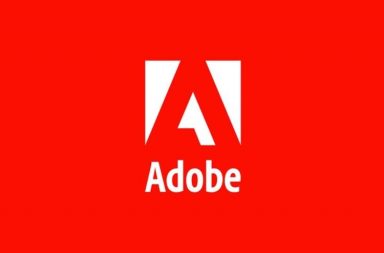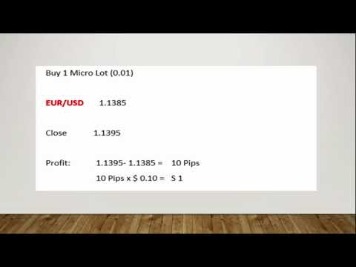Content

These are suitable for both beginner and advanced traders alike, and come with an array of competitive leverage and margin requirements. A contract for difference (CFD) account enables you to trade on the price difference of various underlying assets using leverage. Leverage means you put up only a fraction of the amount needed to trade. When you open a contracts for difference (CFD) position, you select the number of contracts (the trade size) you would like to buy or sell. Your profit will rise in line with each point the market moves in your favour. Although, there is a risk of loss if the market moves against you.
When trading CFDs, you’re predicting whether an asset’s price will rise or fall. If you think the asset’s price will go up, you’ll ‘buy’ (go long) and if you think the price will fall, you’ll ‘sell’ (go short). The outcome of your prediction will determine whether you make a profit or incur a loss. A CFD trade will show a loss equal to the size of the spread at the time of the transaction.
CFD trading enables you to sell (short) an instrument if you believe it will fall in value, with the aim of profiting from the predicted downward price move. If your prediction turns out to be correct, you can buy the instrument back at a lower price to make a profit. If you are incorrect and the value rises, you will make a loss. Remember that if the price moves against you, it’s possible to lose more than your margin of £300, as losses will be based on the full value of the position. When it comes to choosing a broker to trade CFDs with, it’s important to make the right choice. Traders should look for brokers who are regulated, secure and experienced, including award-winning brokers like FXTM.
Practicing on a demo should not be a short endeavor and should extend at least 1-3 months to get truly comfortable with the markets. The next step would be to start your account with a small deposit and trade the smallest sizes possible. The idea of getting rich quickly should never be a goal as trading is a business and any business no matter how fast it grows, should be maintained without over-expecting success.
The asset can be a stock, commodity, currency, or stock index CFDs. The contract does not provide for actual ownership of the underlying asset. It’s important to remember that most CFD trades involve a high risk of losing money, and thus its’ necessary to gain knowledge in this sphere and praсtice trading with these complex instruments. At the heart of CFD trading is CFD margin trading, when a trader earns based on the leverage provided by their broker. CFDs allow investors to easily take a long or short position or a buy and sell position.
Learn how CFD profit and loss works
Get tight spreads, no hidden fees, access to 12,000+ instruments and more. Get tight spreads, no hidden fees and access to 12,000+ instruments. Exinity Limited is a member of Financial Commission, an international organization engaged in a resolution of disputes within the financial services industry in the Forex market. The https://g-markets.net/helpful-articles/nonfarm-payrolls-forecast/ good news here is that the FXTM Advantage account offers typically zero spreads on FX majors and as low as zero on Gold, which are CFD products. Discover and capitalize on opportunities in the markets by trading CFDs. To decide what kind of trade you want to open, you can use a broad range of indicators, charts and signals.
Furthermore, they are not products that generate dividends which means the only way you can make money from them is by betting on a specific direction and eventually being right about it. The profit and loss faced by the trader are essentially calculated by judging the price difference of the asset when the contract is entered and exited. This mainly states that the broker or seller who enters into this contract with you agrees to pay you the difference between the price of the asset when you enter and exit the contract. However, I do not recommend starting trading with real money right away. In order to get started on this market and not let your investor accounts lose money when trading CFDs, it would be best to start with virtual money, i.e. create a free demo account. CFDs and other products offered on this website are complex instruments with high risk of losing money rapidly owing to leverage.
COMMISSIONS
While the product itself has experienced a boom in the past 10 years, the Covid-19 pandemic led to many people working from home amid global lockdowns. Furthermore, the pandemic brought upon bouts of volatility across many popular trading products which helped increase trading activities amid seasoned as well as beginner traders. The drop in leverage available helps protect traders from the adverse market conditions expected on a near-daily basis. The markets can be volatile and new traders may be tempted by early gains brought upon by beginner’s luck only to lose it later when their expectations on certain instruments fail.
The CFD market typically does not have short-selling rules. Since there is no ownership of the underlying asset, there is no borrowing or shorting cost. Brokers make money from the trader paying the spread meaning the trader pays the ask price when buying, and takes the bid price when selling or shorting.
Contract for Differences (CFDs) Overview and Examples
As such, any recommendations or statements do not take into account the financial circumstances, investment objectives, tax implications, or any specific requirements of readers. Learn more about the difference between spread betting and CFDs. But what would have happened if the index had risen 70 points instead? You would lose $70 for each of your five CFDs, a total loss of $350. When you want to close, you do the opposite to when you opened. Every trader has their own opinion on which platform is best – it all depends on what your specific requirements are.
The first company to do this was GNI (originally known as Gerrard & National Intercommodities). Futures, on the other hand, are contracts that require you to trade on the expected future price of a financial instrument. Unlike CFDs, they specify a fixed date and price for this transaction – which can involve taking physical ownership of the underlying asset on this date – and must be purchased via an exchange. The value of a futures contract depends as much on market sentiment about the future price of the asset as current movements in the underlying market.
CFD trading on a rising market
CFD, or contract for difference, refers to a popular financial instrument that is the key component of a trader’s portfolio. CFDs are a form of trading and a popular gateway for a series of investors to enter the financial market. They are offered by brokers for common tradable assets like forex, commodities, and spot metals. CFDs are complex instruments that are not recommended for newbies.

For example, you should consider in advance where to close your position, in both best-case and worst-case scenarios. Think about potential scenarios of how your investment may perform. You should think through how big a loss you can tolerate, or how big a profit you’d be happy with on that particular position. Make sure you understand what you’re doing, both in terms of CFD trading basics and your specific trading portfolio.
What assets can you trade with CFDs?
Traders can choose from an expanded selection of 46 objects including Gann, Fibonacci and Elliott Wave tools. Via the desktop, web-based or mobile version of the MT4 CFD trading software. The web-based version is particularly useful for Apple Mac users, where a direct download is not available. To your style and strategies, giving you total control of your CFD trading in the UAE. The commercialisation of services and the acquisition of clients can only be carried out in Spain by an authorised entity or through a tied agent. Start the program and key in the login details if you already have an MT4(5) platform installed.
- The instrument has only been available to retail clients since the late 1990s.
- Spreads and rollovers are the only CFD trading costs on the AvaTrade platforms; there are no other hidden fees or commissions.
- The first and foremost rule is to always follow the rules of your trading strategy.
- CFD trading, in a nutshell, is speculating whether a particular financial asset, like a stock index, commodity or a currency pair, will increase or decrease in value.
- The larger the value of your trade, the more margin required.
- CFD, or contract for difference, refers to a popular financial instrument that is the key component of a trader’s portfolio.
However, Forbes Advisor Australia cannot guarantee the accuracy, completeness or timeliness of this website. Instead of buying or selling contracts, when spread betting you bet a set number of pounds per point on the direction in which a market is headed. Your profit will increase for every point that the market moves in your direction, in which you think a market is headed. This is what you’ll use to research new opportunities, open and close positions, manage your risk, monitor your P/L and more.
Can I trade CFDs without leverage?
With this form of trading, you don’t own the underlying asset – you’re only getting exposure to its price movements. The trader buys 426 contracts at £23.50 per share, so their trading position is £10,011. Suppose that the share price of GlaxoSmithKline increases to £24.80 in 16 days.
As we guide you through CFD trading, it’s important to start with the basics. Above, you can compare the relevant CFD fees for the top 5 CFD brokers. Want to dig a bit deeper to find the best CFD provider for your needs? Size up brokers side-by-side with the help of our broker comparison table. Alternatively, head to our country selector to find out which broker is available in your country.
Leave a Reply